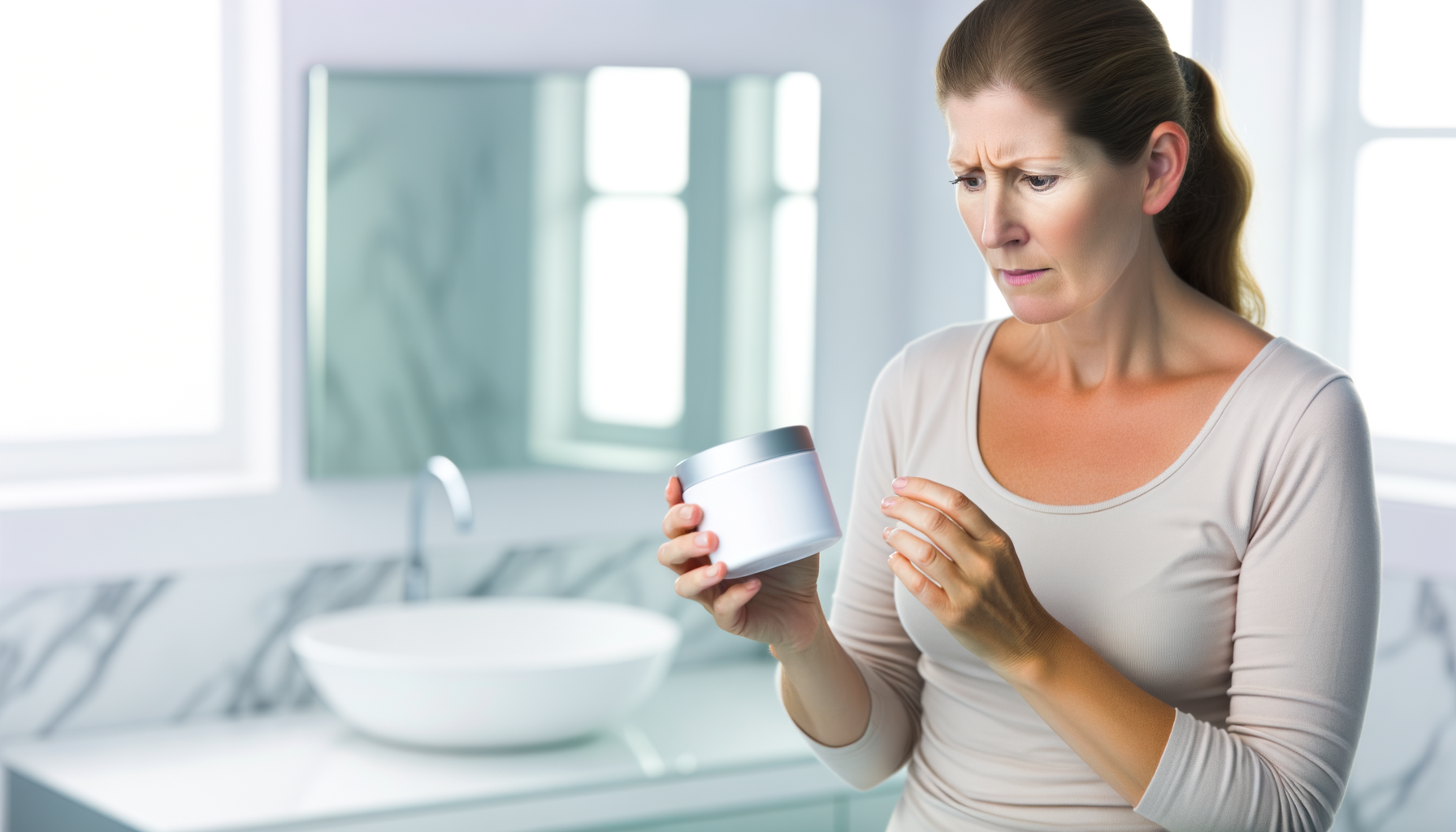The Impact of Aging on Sexual Desire
As individuals age, changes in sexual desire are natural and expected. For many, sexual desire diminishes gradually with age, but the degree and nature of this change can vary widely among individuals. Factors such as hormonal shifts, health status, and life stressors can all influence one’s level of sexual interest. Notably, women often experience a more pronounced decline in sexual drive as they approach menopause, with estrogen and testosterone levels playing a significant role in this shift.
Comparing Sexual Desire in Men and Women
Sexual desire in men and women can differ due to biological, psychological, and social factors. While both genders may experience a decrease in libido with age, women are two to three times more likely to report a significant drop during their late 40s and 50s. This disparity is partly due to menopause and the accompanying hormonal changes that directly impact sexual function and desire.
The Role of Long-term Relationships
Long-term relationships can influence sexual desire in complex ways. For some couples, intimacy evolves beyond physical acts to include emotional closeness and companionship. However, the novelty of a relationship can be a factor in sustaining sexual desire, and as such, some individuals in long-term partnerships may experience a decrease in libido over time.
Factors Contributing to Decreased Libido
Several factors can contribute to decreased libido, particularly during the menopausal transition. These include:
- Hormonal Changes: The decline in estrogen and testosterone levels during menopause can lead to reduced sexual desire and arousal difficulties.
- Health Issues: Chronic illnesses and medications can affect libido by causing fatigue, pain, or changes in body image.
- Psychological Impact: Stress, depression, and anxiety can all negatively impact sexual interest.
- Symptoms of Menopause: Hot flashes, night sweats, and vaginal dryness can make sexual activity uncomfortable, thereby reducing desire.
- Lifestyle Factors: Lack of exercise, poor diet, and insufficient sleep can also contribute to a lower sex drive.
Understanding the multifaceted nature of sexual desire and its changes with aging is crucial for maintaining a fulfilling sexual life during the menopausal transition and beyond.

If you wonder, if this discomfort and the dryness down there will be there forever….
Try Mae. Mae is gives you back comfort, control, re-assurance, and re-connecting.
Mae is more than just a vaginal moisturizer; it’s your ally for intimate natural health, rediscovering joy, cultivating comfort, and even igniting sparks of intimacy and rekindled romance. Mae is your companion in rejoicing in your femininity at every stage of life. Learn more…
The Psychological Aspect of Sexuality
The Brain: Our Most Important Sexual Organ
When it comes to sexuality, especially during and after the transition into menopause, the brain is undeniably the most critical sexual organ. It is the epicenter of desire, arousal, and satisfaction. Menopause, with its hormonal fluctuations, can impact the brain’s chemistry, affecting mood and libido. However, it’s essential to recognize that sexual desire is not solely dependent on hormonal status. Cognitive and emotional factors play a significant role in maintaining a healthy sex life. Mental stimulation, positive sexual thoughts, and an active imagination can enhance sexual desire and overall sexual experience.
The Power of Sexual Thoughts
Sexual thoughts and fantasies are powerful tools that can ignite passion and desire. They can create a mental environment conducive to sexual arousal, independent of any physical stimulation. During menopause, when physical changes may pose challenges to sexual activity, harnessing the power of the mind becomes even more crucial. Engaging in sexual thoughts can help maintain a connection to one’s sexual self, fostering a sense of sexual well-being and confidence.
Improving Sexual Desire Through Mental Engagement
Improving sexual desire during menopause often requires a proactive approach to mental engagement. Here are some strategies to enhance sexual desire through psychological means:
- Communication: Open dialogue with a partner about desires, needs, and concerns can foster intimacy and lead to a more fulfilling sex life.
- Education: Learning about the sexual changes that occur during menopause can empower women to adapt and find new ways to experience pleasure.
- Mental Stimulation: Reading erotic literature, indulging in fantasies, or exploring new ideas with a partner can stimulate the mind and enhance sexual desire.
- Stress Management: Stress and anxiety can dampen sexual desire. Techniques such as mindfulness, meditation, and yoga can help manage stress levels and improve sexual function.
- Therapy and Counseling: Professional support can be invaluable in addressing psychological barriers to a satisfying sex life, such as body image concerns or relationship issues.
Ultimately, the psychological aspect of sexuality is a rich and complex domain that can be nurtured and developed, even as the body undergoes the natural changes of menopause. By focusing on mental and emotional health, women can continue to enjoy a fulfilling sex life well into their postmenopausal years.
Scheduling Intimacy
The Importance of Making Time for Sex
As couples navigate the waters of menopause, the ebb and flow of sexual desire can become a challenge. With the myriad of changes occurring both physically and emotionally, it’s crucial to recognize the significance of intentionally making time for sexual intimacy. This deliberate act acknowledges the value of the connection and pleasure that sex brings to a relationship. It’s not merely about the act itself but about maintaining the closeness and affection that physical intimacy fosters.
Planning and Anticipation
Planning for intimacy may seem counterintuitive to the spontaneous nature of sexual desire we often idealize. However, scheduling sex can create a sense of anticipation, giving both partners something to look forward to. It allows for the preparation of mind and body, ensuring that any necessary measures, such as the use of lubricants or moisturizers to alleviate menopausal symptoms like vaginal dryness, are taken care of. Anticipation can be a powerful aphrodisiac, and the mental build-up to a planned encounter can enhance the overall experience.
Benefits of Scheduled Intimacy
- Improved Communication: Scheduling intimacy encourages partners to communicate their needs and desires, leading to a deeper understanding and connection.
- Stress Reduction: Knowing that there is a special time set aside for each other can reduce anxiety and stress, making the experience more enjoyable and relaxed.
- Enhanced Intimacy: Regularly scheduled sex can help maintain the physical and emotional bonds that are essential for a healthy relationship, especially during the transition of menopause.
- Increased Satisfaction: Couples who plan for intimacy often report higher levels of sexual satisfaction, as they can prepare mentally and physically, ensuring a more fulfilling experience.
In conclusion, while menopause can introduce new challenges to a couple’s sex life, scheduling intimacy can be a powerful tool in maintaining a vibrant and satisfying sexual relationship. By making time for sex, planning with anticipation, and understanding the benefits of scheduled intimacy, couples can navigate the changes brought on by menopause together, ensuring that their bond continues to thrive.
Exploring Non-Intercourse Sexual Activities
Creative Alternatives to Vaginal Intercourse
Menopause can bring about significant changes in a woman’s sexual experiences, often leading to discomfort or pain during vaginal intercourse due to hormonal fluctuations that cause vaginal dryness and atrophy. However, this does not signal the end of a fulfilling sex life. Exploring creative alternatives to traditional penetrative sex can open up a world of pleasure and intimacy. Non-penetrative activities such as mutual masturbation, oral sex, and the use of sex toys can provide sexual satisfaction without the discomfort that may accompany vaginal intercourse. Couples can also explore erotic massage, showering together, or shared fantasy and role-playing as ways to maintain a vibrant sexual connection.
The Role of Sensual and Non-Penetrative Activities
Intimacy extends beyond the act of intercourse, encompassing a range of sensual experiences that can enhance the emotional bond between partners. Non-penetrative activities play a crucial role in maintaining intimacy, especially during menopause when traditional sex may be challenging. Sensual activities like kissing, cuddling, and stroking allow couples to express affection and maintain physical closeness. These acts can be deeply satisfying and affirming, providing comfort and reinforcing the emotional connection that is the foundation of a romantic relationship.
Enhancing Intimacy Without Sex
Intimacy is not solely defined by sexual activity; it is also cultivated through shared experiences and emotional connections. To enhance intimacy without sex, couples can focus on activities that foster closeness and understanding. This might include regular date nights, engaging in hobbies or interests together, or simply spending quality time in conversation. Practicing open and honest communication about desires, expectations, and boundaries can also strengthen the relationship. Additionally, exploring new forms of touch, such as holding hands or exchanging back rubs, can convey affection and maintain a physical connection.
Ultimately, the menopausal transition is an opportunity for individuals and couples to redefine what sex and intimacy mean to them. By embracing a broader spectrum of sexual and intimate activities, menopause can become a stage of exploration and discovery, rather than a time of loss. With creativity, communication, and a willingness to adapt, sexual well-being can be sustained and even enhanced during this natural phase of life.
Utilizing Sexual Aids and Enhancements
Navigating the World of Sexual Enhancement Products
As women approach and enter menopause, they may encounter changes in their sexual function, including decreased libido, vaginal dryness, and discomfort during intercourse. To address these challenges, a variety of sexual enhancement products are available. These range from lubricants and moisturizers to vibrators and other devices designed to increase pleasure and comfort. Understanding the options and selecting products that align with individual needs and preferences is crucial. Women should consider factors such as the ingredients in lubricants to avoid irritation, the intensity and type of stimulation provided by vibrators, and the compatibility of products with their bodies and any contraceptives they may be using.
The Importance of Safety and Pretesting
Safety should be a top priority when utilizing sexual aids. Products should be made from non-toxic materials and be free from irritants that could harm sensitive tissues. It’s essential to read labels and, when in doubt, consult with a healthcare provider. Pretesting products on less sensitive areas of the body can help ensure that there will be no adverse reactions during use. Additionally, understanding how to clean and store sexual aids properly is vital to prevent infections and maintain hygiene.
Incorporating Toys and Aids into Sexual Experience
Introducing sexual aids into one’s intimate life can be a delicate process, especially for those in long-term relationships where changes in sexual routines may be met with resistance or concern. Open communication with one’s partner is essential to ensure mutual comfort and consent. Demonstrating how these aids can enhance shared pleasure can be part of the exploration. For solo experiences, sexual aids can provide new forms of stimulation and help in discovering what increases pleasure and satisfaction. Whether used alone or with a partner, sexual aids should be seen as an extension of one’s sexuality, offering diverse ways to experience and enjoy sexual activity during menopause and beyond.
Ultimately, the use of sexual aids and enhancements should be approached with an open mind, clear communication, and a focus on safety and personal well-being. With the right information and attitude, these tools can significantly enhance the sexual experiences of menopausal women, helping them to maintain a fulfilling sex life.

From unhappy, dry, and sandpaper to silky, smooth and feeling good. That’s Cleo. Cleo is a 100% natural labial balm to moisture and soothe “your other lips”. Cleo is chemical-free, water-free, pH optimized and helps maintain and restore your delicate labial skin’s natural flora. Ideal for daily use or as needed. Get the most silky, lovable lips ever.
Maintaining Physical and Emotional Health
The Connection Between Lifestyle and Libido
The intricate dance between lifestyle and libido is undeniable. As we age, our bodies undergo significant changes that can affect our sexual desire and performance. Menopause, in particular, brings about hormonal shifts that can dampen libido. However, lifestyle choices play a pivotal role in maintaining sexual health. Regular physical activity, for instance, can improve blood flow and increase energy levels, both of which are crucial for a healthy sex life. Additionally, habits such as smoking or excessive alcohol consumption can impair sexual function. It’s essential to recognize that a balanced lifestyle, including stress management and adequate rest, can significantly enhance libido and overall well-being.
Self-Confidence and Body Positivity
Self-confidence and body positivity are powerful aphrodisiacs. Menopause can sometimes challenge these, as women navigate the physical changes that accompany this stage of life. Embracing these changes and fostering a positive body image are critical for sexual satisfaction. Celebrating the body’s journey and focusing on the aspects that bring pleasure rather than on perceived flaws can bolster self-esteem. Confidence in one’s body and sexuality can lead to more fulfilling and enjoyable sexual experiences.
Diet, Exercise, and Sleep: The Triad of Sexual Well-being
The triad of diet, exercise, and sleep forms the foundation of sexual well-being. A nutritious diet rich in antioxidants and phytonutrients can support hormonal balance and vascular health, both of which are essential for sexual function. Regular exercise not only improves cardiovascular health but also increases flexibility and stamina, enhancing sexual pleasure and performance. Quality sleep is the body’s opportunity to repair and rejuvenate, impacting hormonal regulation and mood, which are closely linked to sexual desire. Together, these three pillars support a vibrant sex life during menopause and beyond.
By addressing these aspects of health, women can navigate menopause with confidence, maintaining not only their physical and emotional health but also a satisfying sexual life. It’s important to remember that sexual health is an integral part of overall well-being, and nurturing it can lead to a more joyful and connected life.
By the way, something for you, a little gift!!!
I am just in the middle of publishing my book. It’s about How women can balance their hormones. One part is about food and diet, of course.
Follow this link and enter your email.
I will send you this part of the book for free once the book is published. It has many concrete, practical tips and recipes and will help you feel better during menopause or times of Big hormonal fluctuations.
Annette, Damiva Lead for Health & Wellness

Communication and Professional Support
The Importance of Open Communication with Partners
Open communication is the cornerstone of any healthy relationship, especially during menopause when physical and emotional changes can significantly impact intimacy. It is crucial for partners to engage in honest and empathetic dialogue about their experiences, concerns, and needs. Sharing feelings about menopause and its effects on sexual desire and activity can help both partners understand and adapt to these changes. This transparency fosters a supportive environment where both individuals feel heard and respected, ultimately strengthening the bond and intimacy within the relationship.
Seeking Medical and Therapeutic Assistance
Menopause can introduce a range of sexual health challenges that may require professional intervention. Seeking medical assistance from healthcare providers who specialize in menopausal care can provide valuable insights and treatment options for managing symptoms that affect sexual health, such as vaginal dryness, discomfort during intercourse, and decreased libido. Additionally, therapeutic assistance from counselors or sex therapists can address emotional and psychological barriers to a fulfilling sex life, offering strategies to enhance communication and intimacy.
Finding the Right Support: Therapists and Counselors
Finding the right professional support is essential for navigating the complexities of sex and menopause. Therapists and counselors trained in sexual health and menopause can offer tailored guidance and support. It is important to seek professionals who create a safe and non-judgmental space for discussing intimate issues. They can facilitate conversations that may be difficult for couples to have on their own and provide tools and techniques to improve sexual communication and satisfaction.
Continuing Sexual Activity for Health Benefits
Continuing sexual activity during and after menopause can have numerous health benefits, including improved cardiovascular health, strengthened pelvic floor muscles, and enhanced emotional well-being. It is important to recognize that sexual activity encompasses more than just intercourse; exploring non-penetrative forms of intimacy can be equally beneficial. Maintaining an active sex life contributes to overall quality of life and can help couples maintain a sense of connection and vitality.

















